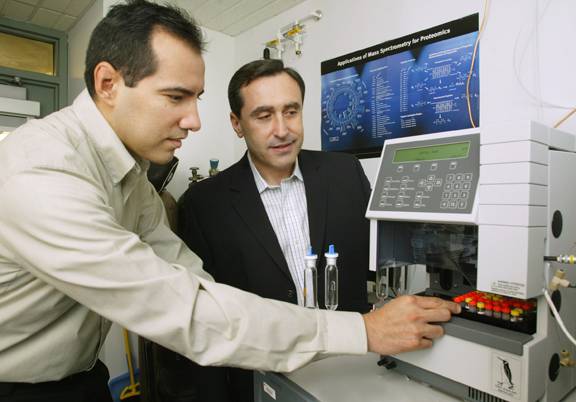As part of the American Recovery and Reinvestment Act (ARRA), Princeton University has received $23 million in research funding from the Air Force Office of Scientific Research, the U.S. Department of Energy, the National Institutes of Health and the National Science Foundation.
The grants will fund some 60 projects in wide-ranging fields, including energy, mathematics, engineering, meteorology, computer science, politics and neuroscience. Additional awards will be announced over the next several months.
In addition to these funds, the U.S. Department of Energy's Princeton Plasma Physics Laboratory (PPPL), which is managed by the University, recently received $1.8 million in Recovery Act funding to support innovative experimental approaches to fusion and develop specialized instrumentation to enable highly precise measurements during fusion experiments, bringing the total amount of ARRA funding awarded to the lab to $16.9 million. This new award is in addition to previous ARRA grants to PPPL, including $13.8 million in support of fusion energy research and infrastructure improvements.
"Princeton is honored to receive these stimulus funds, which recognize the potential for extraordinary economic and societal impact in the work being done by our world-class research community," said A.J. Stewart Smith, Princeton's dean for research and the Class of 1909 Professor of Physics. "Whether advancing the understanding of mathematics, developing cleaner-burning jet fuels, or gaining deeper insight into the workings of the human brain, the knowledge generated in the work supported by the American Recovery and Reinvestment Act will address a wide range of national goals and contribute to solving many of the greatest global challenges of the 21st century."

Biologist Benjamin Garcia (left), chemical engineer Christodoulos Floudas (right) and chemist Joshua Rabinowitz (not pictured) were awarded $1.3 million from the National Science Foundation to develop a computational platform to extract meaningful information from the vast quantities of data gained by mass spectrometry, the leading technique for chemical analysis of proteins and other compounds produced during cellular processes. By addressing this information bottleneck, their work could overcome major barriers in the field and help pave the way for significant advances in biological research. (Photo: Frank Wojciechowski)
Examples include:
• a molecular biologist who will use the award to characterize the genetic basis of antibiotic resistance in E. coli bacteria. This increased understanding could provide guidance for the development of new drugs and therapeutic regimes.
• a chemist who is putting the grant toward the development of a novel solution to the complex and interrelated problems of greenhouse gas emissions and dwindling energy resources by using light to convert carbon dioxide into methanol and isopropanol — alcohols that can be used as fuel.
• a computer scientist who is working to improve Web access in disadvantaged regions through the development of "content retrieval networks."
• an engineer who will delve deeper into a breakthrough nanolithography technology developed in his lab to create ultrasmall features on microchips. The research has implications for many areas of science, including physics, biology, energy and consumer product development.
"America's economic prosperity, entrepreneurial spirit and openness to innovation are constantly nourished by scientific research," said U.S. Rep. Rush Holt. "The $23 million in federal stimulus funding received by Princeton University will have an immediate and long-term impact on the economy in central New Jersey. In December 2008, I arranged a roundtable discussion at Princeton with President [Shirley M.] Tilghman, Speaker of the House Nancy Pelosi, Congressional leaders, and national leaders in the science and technology community. The seeds planted there resulted in more than $22 billion in Recovery Act funding for science facilities and research and development."
Princeton's Office of the Dean for Research has provided brief summaries of the stimulus-funded work that will take place at Princeton on a website. Additional information on the ARRA is available from the Office of Research and Project Administration.